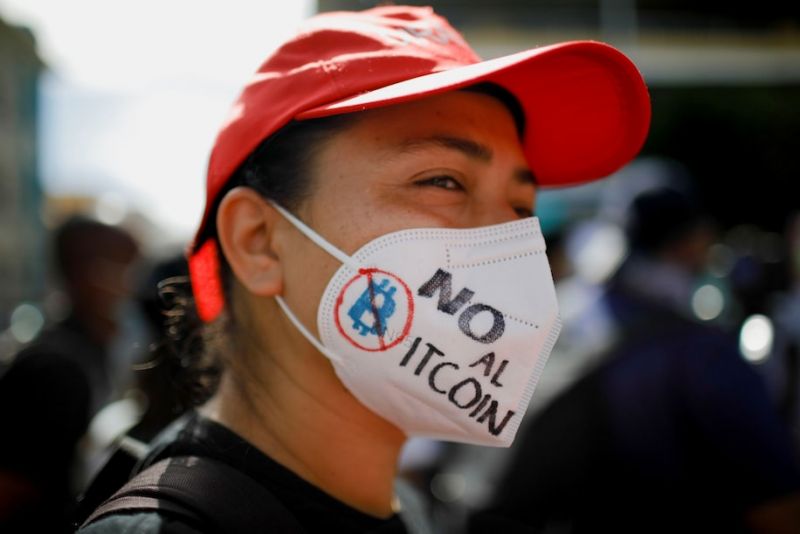
El Salvador, a small country of a little over 6 million people and very limited Internet access, has become the first nation in the world to adopt bitcoin as an official currency. On Tuesday, the Bitcoin Law came into effect after being approved in June barely three days after President Nayib Bukele surprised citizens — and pretty much the rest of the world — with the announcement of his newfound plan.
The law has attracted global attention, certainly a PR and propaganda coup in tune with Bukele’s marketing background. But the stunt loses its appeal when salaries, savings and debts of everyday Salvadorans face great risk.
Two aspects of this plan are cause for grave concern.
First, how ready are Salvadorans to adopt this new forced conversion? The law establishes that all economic entities “must accept bitcoin as a form of payment”. A week before the law came into effect, I spoke with four people who offer goods and services and are now required to accept the cryptocurrency. They all said they had not received any training or guidelines from the government ahead of the announcement. They have no real animosity toward Bukele. They simply didn’t know what to do. Their worries ranged from how to register the new “digital wallets” to their legal business to how to keep track of revenue in two independent currencies (the U.S. dollar is the other official currency in El Salvador). Of course, top of their minds was also the volatility and fluctuations of bitcoin.
When the price swings up, bitcoin holders win, for sure. But when it happens the other way around? What if, in a matter of days or weeks or even hours, the bitcoin we carry in our new “wallets” were to depreciate drastically? It happens frequently. On Tuesday, as El Salvador officially adopted the currency, the price dropped almost 10 percent.
This new policy is already creating uncertainty and chaos, things no one wants associated with their economic situation. Despite Bukele’s high approval ratings, a July poll showed 77.5 percent rejected the measure.
Which brings us to the second concern. Why would a popular president risk his political capital on such a risky plan? Some speculate this is a step toward eliminating the U.S. dollar from circulation; some believe the push is to reward people and businesses close to the president that stand to benefit from the rollout of new software, ATMs, etc. Some believe there’s a genuine effort to bypass the financial firms that skim millions in fees from the remittances sent to El Salvador every year.
An official in the Bukele administration admits that their own polling reflects the unpopularity of bitcoin. But they are convinced that people will come around and that the benefits will wash away the fears quickly. It’s a big political gamble: Can Salvadoran society really change its view on such an unpopular measure so quickly? It will be a test for other significant policy proposals to come.
But bitcoin could become the first setback for Bukele. “The Bitcoin Law hits the stomach and pockets of the people”, said René Portillo, a leader of Arena, the main opposition party.
While Bukele plays a risky game that could ruin El Salvador’s economy, the opposition is ready to pounce. It keeps painting all kinds of apocalyptic scenarios for Salvadorans. But if they don’t come to pass and Bukele comes out ahead, they would have helped, once again, to consolidate his tightening grasp on the country’s political future.
Roberto Valencia is a journalist working in El Salvador and a regular contributor to Post Opinión.
